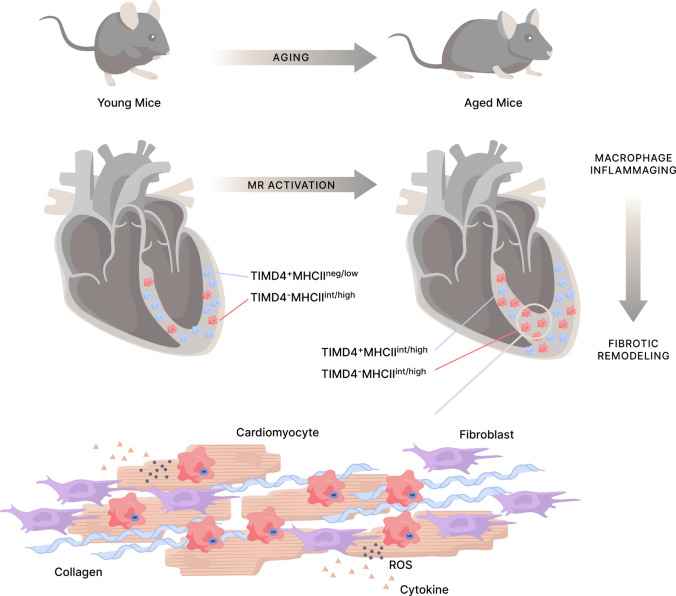Fig. 7.
Mineralocorticoid receptor activation in macrophages during healthy aging leads to dysregulation of biological processes related to inflammation and cell metabolism, which promotes cardiac macrophage inflammaging. Heart aging is characterized by a progressive expansion of the TIMD4– macrophage population that mediates inflammatory and fibrogenic responses. TIMD4– macrophages are mainly restricted to areas of fibrosis, containing a large amount of fibroblasts. The inflammatory crosstalk between TIMD4– macrophages and fibroblasts implies the macrophage MR and the release of mitochondrial superoxide anions. MR deficiency in macrophages prevents the activation of pathways related to inflammation in fibroblasts, reduces the expansion of the TIMD4– macrophage population and the emergence of fibrotic niches in the aging heart, thereby protecting against cardiac inflammation and fibrotic remodeling

